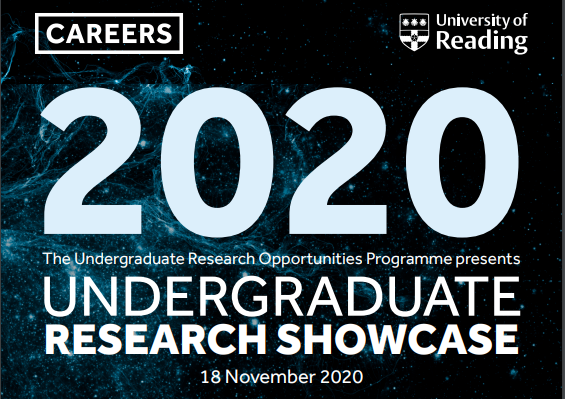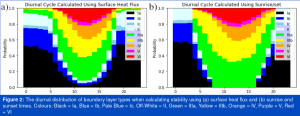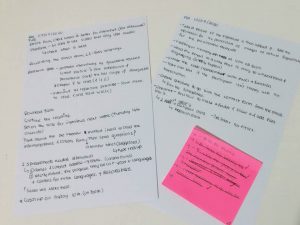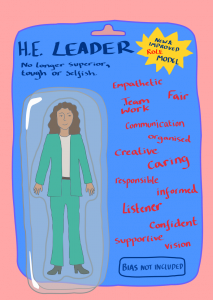The Undergraduate Research Opportunities Programme (UROP) offers undergraduate students the chance to gain hands-on research experience on projects covering all disciplines across University. These projects take the form of a paid six-week placement during the summer vacation. Of necessity this year many of these projects had to be delivered in different ways. None the less, 79 students submitted their research projects for the showcase which demonstrates the breadth of research being undertaken as well as our support for undergraduate students.
A small judging panel of former UROP supervisors viewed all 79 screencasts and selected four theme winners. Each will receive a small prize and be supported to attend UK undergraduate research conference in 2021. The two overall winners, Sol Sanders-Farmer and Lucy Harwood, will be supported to present at the UK Posters in Parliament, which usually takes place in spring.

We talked to the four winning students:

Agriculture, Food & Health
Evie Harrington
Researching emotion perception of music stimuli: a validation study
(supervised by Dr Fang Liu and Florence Leung, Psychology)
This research involves the first round of validation for a future study that will investigate the way individuals with and without autism recognise emotions in speech, vocal and instrumental music in distracting environments.
Evie said:
“Taking part in this research has made me more confident in using programmes such as Gorilla, Excel and SPSS which will be extremely valuable for my final year project. Additionally, this research has made me realise just how interested I am in music psychology and this is something I would like to investigate further for my final year project.”

Environment
Sol Sanders-Farmer
How well can boundary stability be estimated from sunrise and sunset times?
(supervised by Dr Natalie Harvey and Dr Helen Dacre, Meteorology)
This project evaluates the effectiveness of the method of atmospheric boundary layer (ABL) classification technique that uses sunrise and sunset times to estimate the stability of the ABL, in the absence of surface flux data. To evaluate the effectiveness of this method, the ABL classification technique presented by Harvey et al. (2013) was applied to five years of Doppler lidar and sonic anemometer data from the Chilbolton Observatory in Southern England.
Sol said:
“I thoroughly enjoyed tackling practical problems and seeing the results of my work tie in with the research in the field. From reading the necessary literature I learnt how to approach and tackle academic papers. I also was taught invaluable skills about report writing and computer programming by my supervisors which has helped me immensely with my dissertation. Completing the project has shown me how exciting and rewarding research work can be and has spurred me to apply for PhD positions for after graduation.”

Heritage & Creativity
Krupali Vijay
How home and international students work and communicate together in group tasks
(supervised by: Dr Sarah Brewer, ISLI)
How home and international students collaborate and communicate in group tasks is key to a more effective learning environment. This project asks the question ‘Have group work projects been built well enough to positively reinforce student learning?’ Participant feedback was analysed through extensive reading to identify emerging common themes.
Krupali said:
“Doing the UROP project was one of the best experiences I could have ever had. I was able to research and learn about a field and topic that I had a strong interest in but was completely unrelated to my degree. My supervisor was very supportive – she always took my opinions into consideration and gave me advice if I ever got stuck. As I researched a topic that all students are impacted by, interviewing other students was really an eye opener for me. Everyone had their own individual opinions and problems, some of which I couldn’t have imagined existed if I hadn’t gotten the opportunity to do this project.”

Prosperity and Resilience
Lucy Harwood
(supervised by: Dr Karen Jones, Institute of Education)
This project examined diversity and inclusion across the University by survey. Although some participants in this survey commented on the improvements to the systems of promotion at the university, it was seen that there are still recurring problems faced by women, BAME and disabled people.
Lucy said:
“As well as analysing the qualitative data from the survey and reviewing literature about visual/graphic research methods, I created my own graphic artworks to illustrate the key themes in the data. This project has given me experience of how art can be used to disseminate research and get a deeper understanding of the data – something I was not familiar with before, but now want to implement into my future art practise.”
The UROP Showcase is also an opportunity to acknowledge outstanding supervision in projects with Nat Hansen, an associate professor in the Department of Philosophy, winning the Supervisor of the Year award.
Nat said:
“I’m so pleased to receive the UROP Supervisor of the Year Award! The UROP shows how valuable and enjoyable research-led teaching can be, and it’s a highlight of my teaching experience at the University. Hamish Greening, who made our project possible and who nominated me for the award, deserves most of the credit for the success of our research. He spent dozens and dozens of hours running online conversational experiments and developed central components of the experimental approach we used. We have written a paper based on our findings that is currently under review. We have plans to run more experiments using Socratic questionnaires, to investigate under what conditions people are willing to revise their initial judgments about philosophical thought experiments.”
UROP began in 2006 and since then over 7500 students have benefited from taking part in the programme. The Careers Team coordinates the programme with the aim of help with employability, skill development – communications, organisation, methods, time management and project management – as well as offering a unique experience. For researchers, it is equally rewarding – collaborating with undergraduates can produce a fresh perspective on research and can help develop students into promising candidates for postgraduate research.
The 2021 Programme is currently open for applications. Any researcher can apply to be a Principal Investigator on UROP projects – to qualify, you must be a permanent member of staff, or on a fixed-term contract running past November 2021. Post-Doctoral Research Assistants can apply to be Principal Investigators if their supervisor is listed as a Co-Investigator, and PhD students may co-supervise projects only.
Visit the UROP website for further details, or email the UROP Team for advice on applications or information on the scheme in general.
The deadline for staff to apply for a UROP project is 17:00, 18 December 2020.
If you are a student interested in applying for a UROP project in the summer of 2021 please click here to join our mailing list.
